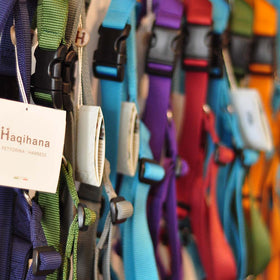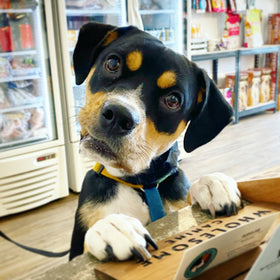
Navigating Dog Training: Prioritizing Trauma-Informed Care for Rescue Dogs
Navigating the world of dog training, especially online, can be overwhelming. With so much conflicting information, it can be hard to know where to turn for help. The industry is unregulated, meaning literally anyone can call themselves a “dog trainer”—no formal training required, no governing body watching over anyone. As caregivers, we have a responsibility to be more discerning about who we allow to interact with our dogs because the wrong type of training can have lasting, detrimental impacts on their physical and mental wellbeing.
Rescue dogs, particularly those that have just arrived from far flung places, are incredibly vulnerable. It’s crucial to collaborate with individuals who comprehend the level of trauma associated with such a significant transition and who recognize its psychological impact. Many of these dogs have endured life on the streets, learning to be self-sufficient. Some have never experienced a connection with a human or lived indoors until they’re in their new homes. The abrupt shift in environment and the sudden confinement within a stranger’s home can overwhelm them.
The priority for these dogs is ensuring their safety, both physical and emotional. But you can’t train them to feel safe; the focus lies in creating an environment that fosters their sense of security so they eventually feel safe. This underscores the critical importance of screening potential trainers and professionals to ensure the dog is never subjected to fear or unnecessary stress.
What They Most Need
- A trauma-informed approach to care
- To be understood
- To feel safe
- To be listened to and respected
- Reassurance
- Easy, regular access to good food and fresh water
- A safe area with comfortable bedding
- Ability to choose
- Freedom to engage, or not
- Enrichment to encourage curiosity
- A safe, predictable social group
- Patience, compassion, and love
Things To Avoid
- Leash pops or “corrections”
- To be picked up
- To be forced out of their safe space
- To have their personal space invaded
- To be intentionally put in situations they find stressful
Letting go of our own desire for a specific outcome is vital. Every dog is unique, and we need to work with the individual in front of us. Our duty as their caregiver is to approach this process with compassion, kindness, and empathy, and to invest in the relationship by creating a safe environment for them to heal, build trust, and feel secure. Learning who they are, understanding their specific needs, and allowing them to move at their own pace are the keys to success.
Ask Questions
When seeking guidance from a trainer, be sure to ask lots of questions. Here are some suggestions:
- Can you describe your training methods/philosophy?
- What formal education have you undertaken?
- How many years experience do you have training dogs?
- Who are some of the people in the industry that you admire?
- What sort of equipment do you use to walk your dogs?
- What does a rescue dog need most in those early weeks/months?
- Can you provide recent references?
At Wholesome Canine, we take great pride in our commitment to lifelong learning. If you need help with your dog, we can help you find the necessary support and resources.









